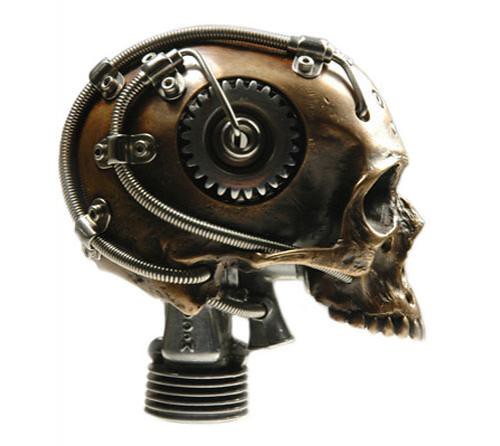
"Anyone can look at a pretty girl and see a pretty girl. An artist can look at a pretty girl and see the old woman she will become. A better artist can look at an old woman and see the pretty girl she used to be. But a great artist--a master--and that is what Auguste Rodin was--can look at an old woman, and portray her exactly as she is ... and force the viewer to see the pretty girl she used to be ... and more than that, he can make anyone with the sensitivity of an armadillo, or even you, see that this lovely young girl is still alive, not old and ugly at all, but simply prisoned inside her ruined body. He can make you feel the quiet, endless tragedy that there never was a girl born who ever grew older than eighteen in her heart ... no matter what the merciless hours have done to her."
I love the concept of “Stranger in a Strange Land.” Honestly, I reread it over Spring break, took me about the entire week. The book had an interesting perspective of our society set in the future, seen from a human who was brought up by martians. So everything is strange to him, he being the alien on the inside, fits in perfectly on the outside. I can relate to this in a way because I am not American, and I was not brought up with the American way. Of course the society has had an influence on me; I also feel I have both an outsider, and insider perspective of both German and American society.
Mike may have been born with two human parents, his upbringing and origin is completely miraculous and unusual. He was brought up by Martians, on Mars, about as absurd as being born by a virgin. And Mike is completely aware of this parallel, setting himself up as a religious leader, preaching peace, love, orgy, and grok. He's as alien as Jesus Christ and has his own Holy Ghost being the Martian Elders. And 'Thou art God!' He even sets himself up as a martyr, and at the end positions himself so it looks like he has a halo.
The narrative throughout the novel constantly changes from an individual's perspective, to a world view. It switches from the main characters, Mike and Jubal, to the world leader and his wife, and then corporate angels in heaven looking in on the world, constantly keeping tabs and influencing people with their presence and the lives they had lead. These angels in heaven, such as Foster, have sinned, but their presence on Earth have lead numerous people to their own path of God, thus assuring their place in heaven. Even though it was all corrupt. Mike's presence up their assures the reader his lasting impact on the people of Earth.
Jubal does not seem like a main character at first, but he's more present then any other character. But unlike a main character he does not gradually go through a transformation, stubborn in his old ways claiming he is too old. He only changes toward the end, where he starts to accept the ways of Mike's cult. Personally he's my favorite character because he spouts all this wisdom, and acts as a father figure. And of course indulges in the arts, which is a major plus.






